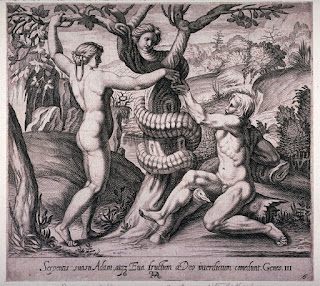When I was reading this section of Paradise Lost , the lines that immediately struck me were "One, who brings/ A mind not to be chang'd by place or time./ The mind is its own place, and in itself/ Can make a heaven of hell, a hell of heaven" (252-255) and "Better to reign in hell, than serve in heaven" (263). I'm not incredibly well-versed in biblical stories, but what I had gathered was that Hell was a place that Lucifer was banished to. However, Milton is writing as if Hell is Lucifer's safe haven from God, a place where he can finally be free. It also seems that Lucifer swears to perform evil deeds not because he specifically desires to, but because it is the exact opposite of what God is supposed to do. Even within these first 375 lines, Milton is creating a character that is much more layered than what is commonly believed, and it will be interesting to see how that plays out later on.
